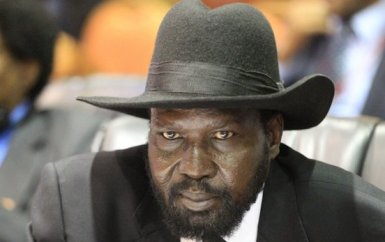Exiled South Sudanese decry lack of democracy
August 27, 2014 (KAMPALA) – South Sudanese living in the Ugandan capital, Kampala, say freedom of speech and their country’s system of governance has continued to worsen since the outbreak of violence in mid-December last year between the government and rebel forces led by former vice-president Riek Machar.

They also complain that basic infrastructure such as roads, schools, hospitals and electricity remain almost non-existent across much of South Sudan.
Thudan Gai Majok, who is studying for his masters in public administration at Saint Lawrence University in Uganda, says he sees no signs of democracy in South Sudan.
Despite being democratically elected he said the current government under the leadership of president Salva Kiir had failed to deliver for the people of South Sudan since the country gained independence from Sudan in 2011.
“In order for you to bring them (the people) service, you have to give them things that they want as the government elected by them, but that never happened,” he said.
“Democracy as it is defined; it is rule of the majority respecting the right of the minority … having accountable governance; the government elected by the people and it is the government for the people and by the people – that is what democracy is all about,” added Majok.
Nyanduel Teresa Bawar, a South Sudanese choir director at a Uganda’s Catholic Church, says for free speech to develop in South Sudan, there must be a truly democratic system of governance.
“To have a freedom of speech in South Sudan we need a good leader which will allow everything for his or her people to do, like freedom of worship [to] God and freedom of anything,” said Bawar
Majok also criticised the government’s treatment of the media, with journalists routinely harassed and intimidated by officials and security forces.
“It is very unfortunate that we have the media law which is in place, but still we behave like people who have never gone to school. People do not know what is happening; [the] media is not actually free. Anyway, there a lot thing we know and we cannot talk a lot about it,” he said.
Goi Gatyang, a student at Makerere University, describes South Sudan as a country ruled by a dictator, saying democracy will not exists as long as people have no freedom to express their thoughts publicly.
“I don’t think the dictatorship government that is ruling the country with [an] iron bar can grant freedom of expression and speech to the people unless [they are] posting or publishing what has been inspected by the government. Otherwise, [the] censorship of the government is controlling all the system of the media in the country,” he said.
According to Gatyang, freedom of expression can also be secured if there is a change to the country’s system of governance.
However, some South Sudanese in Kampala believe that freedom of speech is not as easy to achieve in Africa as it is in the West, saying that some African countries are driven by tendencies of dictatorship, making it difficult to implement true democratic principles.
(ST)
